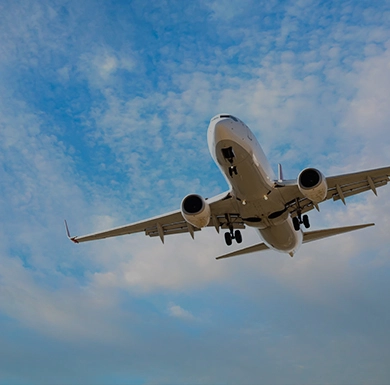
As a pilot, you need to be able to distinguish between different colors to operate an aircraft safely. Pilots are given color vision tests by an Aviation Medical Examiner (AME) as part of the requirements to obtain a pilot medical certificate.
The good news is that if you fail the color blindness portion of the examination, you might still be able to fly. Understanding the color vision requirements for pilots is essential if you discover you have a problem recognizing colors.
How Does a Color Vision Deficiency Impact My Pilot’s License?
Pilots rely on color vision to recognize airport beacons, aircraft position lights, chart symbols, light-gun signals, and approach-slope indicators. This ability is especially important when you are flying at night. A pilot who cannot distinguish between the colored lights could endanger the passengers, crew, and people on the ground.
Many student pilots discover they have a color vision deficiency when they fail this portion of their medical examination. The FAA will require the AME to place restrictions on their medical certificate in this circumstance. The pilot may then be prohibited from flying at night or operating by color signal control, which can impact a pilot’s career choices.
Testing Pilots for Color Vision Deficiencies
If you suspect you might be color deficient, talk with an experienced FAA attorney. An aviation lawyer can help you develop a strategy to handle your problem with color vision to avoid a restriction on your medical certificate, if possible.
An AME may use one of several accepted color vision tests, including:
- Ishihara
- Keystone Orthoscope or Telebinocular
- American Optical Company (AOC)
- Richmond HRR or 15-plate
- Dvorine
- OPTEC 900 or 2000
- Farnsworth Lantern
- AOC-HRR
- Titmus i400
If you fail the color vision tests in the AME’s office, you can try the Operational Color Vision Test (OCVT). If you pass the OCVT, the FAA will remove the color vision restrictions on your pilot medical certificate. The requirements for the OCVT depend on the applicable medical certificate class.
OCVT for Third-Class Medical Certificate
If you apply for a third-class medical certificate, the OCVT is administered by an FAA safety inspector at your local Flight Standards District Office. The test consists of two parts:
Aeronautical Chart Reading
You are tested to determine if you can correctly read and evaluate the colors on a navigation chart. This test can be challenging because the quality of the chart might be poor, and the FSDO will use various font sizes, typefaces, and colors of conventional terrain and markings.
Signal Light Test
This test determines if you can identify signal lights. You must be able to identify aviation white, green, and red via a light gun signal at a specific distance in a timely fashion.
This test is given during the day. If you fail the test, you can take it at night. However, your FAA medical certificate will have a restriction that states it is not valid for flying during daylight hours by color signal.
OCVT for First- and Second-Class Medical Certificates
You must take the above tests required for the OCVT third-class medical certificate. In addition, you must complete a Medical Flight Test given at a Flight Standards District Office (FSDO). The test is given during a flight to determine if you can do the following in a timely manner:
- Visually identify the significance, color, and location of aeronautical lights
- Recognize obstructions and terrain
- Read and correctly interpret displays and instruments
The FAA does not permit pilots to wear color-correcting lenses or sunglasses. You must pass the tests without assistance from color correction products.
Also, you can only take the OCVT one time during the day. If you fail, you can take it one time at night. The FAA gives you one chance to pass these tests.
Contact the Aviation Lawyers from The Ison Law Firm Aviation Lawyers for Help Today
If you have concerns about your FAA color vision test or medical certificate, contact our aviation lawyers at The Ison Law Firm. We will evaluate your situation and advise you of your options for presenting a case to the AME or FAA to obtain your medical certificate.
You need both a pilot and a lawyer on your side for your aviation law needs. Don’t hesitate to contact our team from The Ison Law Firm Aviation Lawyers to schedule a confidential consultation with an experienced aviation lawyer today.
We’re pilots representing pilots. The Ison Law Firm Aviation Lawyers offers FAA enforcement defense and medical certification representation worldwide!
The Ison Law Firm Aviation Lawyers
Phone: Toll-Free 855-322-1215
Office Hours: Mon – Thu, 9:00 AM to 5:00 PM
Fri, 9:00 AM to 12:00 PM
Disclaimer: Messages left for attorneys after these business hours will be addressed the following business day, during business hours.

